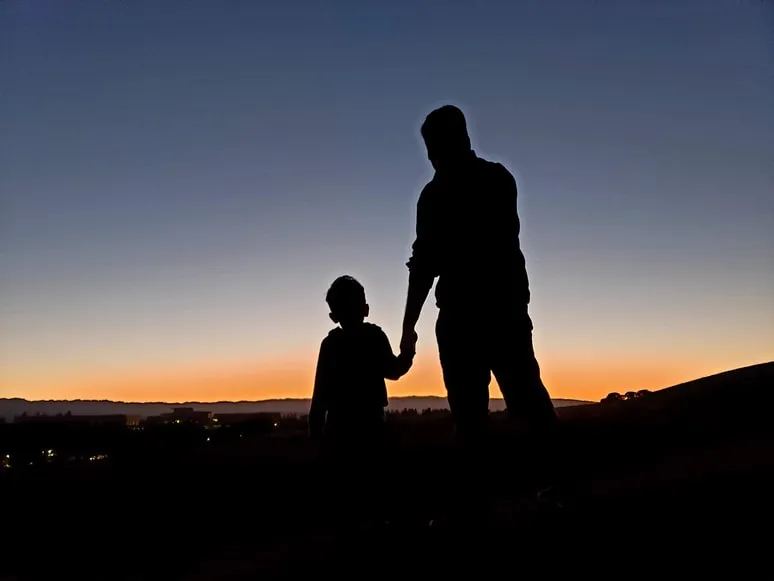
In 2018, I gave a talk in the Techy Talkers Toastmasters group of CMU-Africa titled “tribute to Baba”. I presented, in three points, some habits I learned from my father. This is a small piece of the lessons I learned and I am writing them here as an appreciation to the life my father lived when I was growing up (and still does) and as lessons to current and future parents. All the lessons in the article are from his way of life rather than any advice he gave me.
1. Planning
My village, Bafut, is divided into about 48 wards which we call Quarters. Each Quarter has a Quarter head, elders, and most often a church and a community hall. The Quarter I grew up in is called Ntabuwe and had about a thousand people. The economy was (and still is) predominantly subsistence farming with extra food sold on village market days. A few people had semi-skilled jobs like hairdressing, shaving, carpentry, bricklaying, shoe mending, tailoring, but still went to the farm often. Once every week, the village market is held and we go to sell some of our food. In such a farming community, it is difficult to sell anything because a majority of the people plant what they eat. As such, money is very difficult to get.
It was common for schools to send kids back home because their parents could not pay their school fees in time. I was privileged to be one of those who was never sent back home. This was not because my parents made more money, but because they had an unmatched ability to plan and save money. When my father pays my school fees, he immediately starts planning for the next year. With a pen and paper, he would estimate my fees for the next year (with error margins) and the cost of textbooks, ledgers, pens — essentially everything. He would then do a rough estimate of how much he has to save monthly to get to the goal at the beginning of the next school year. He joined village saving groups and Njangi groups which saved money regularly. He also joined the local credit unions and was able to save enough in time to pay my fees.
Planning was not limited to a single year. He knew the demands will increase at the university so he started looking at crops we could plant which would provide more income in the next four to six years. We planted ginger which helped us significantly, but the price fluctuated often, making it an unreliable source. We added cocoa as it was estimated to start bearing fruits in five years. We planted avocado, Orange, bush mango, grape trees, and other plants which could provide money in the long run. This is how I got through my undergraduate studies.
What I appreciate the most is that my father brought me into all of this planning. Estimating how much we needed and how much we had to raise within a year. I was aware of the struggle and was part of the crew to raise the money. Seeing all of this, I could not be lazy in school.
2. Relentlessness
It was about 4:30 am in Ntabuwe on a cold Saturday morning and deep in my dream, I could hear raindrops starting to hammer on our roof. The raindrops usually felt like hailstones under an aluminum zinc with no ceiling. I could feel the drops increase steadily to a uniform pattern of rain. My father, as usual, had planned for us to go to a farm about an hour’s walk from home. He usually woke up at 5 am to go to the farm early— a decision he made after experimenting and concluding that he is more productive early in the morning. Under my blanket, I was thinking “God, thank you for the rain, there is no way we are going to the farm today.” At 5 am, the rain was still pounding on the roof and I was getting certain “there will be no going to the farm today.” Suddenly, I heard the sound of a match stick hitting the side of the match box. That was my father lighting a match to power the Oil Lamp. I could hear him pick up some tools and the plastic paper used as a rain shield. My hopes started to diminish. He then turned off the Lamp, opened the front door, and dived into the rain as if he had some weather forecast device. This meant one thing — we had to follow him to the farm since we carried his food, irrespective of the rain. Lucky for us, the rain stopped and we followed under some sunlight.
This is just one of the many days this happened. My father rarely canceled a plan, even when all odds were stacked up against him. My understanding of this as a child was that “it is not normal to cancel a plan because of obstacles you can surmount”. When we blocked time at home to do anything, it was hardly a choice. The upside of this is that little obstacles did not stop us from doing something that was planned. It also helped us to say yes only to things we were sure about. The problem I faced out of home was that many variables were out of my control. When I scheduled something with someone and they canceled on short notice(which happened too often), I did not know what to do with the time. I started putting two plans when any factor was out of my control. What I learned is that if my yes is not optional, I say it only to things I am sure about.
3. Unbiased Hardwork
Growing up in a ward of Bafut with just about a thousand people, I knew everyone and where they lived. Gender-specific roles were prevalent, especially among the older generation — Men clear the farms while women till; Men fetch firewood, split and pack while women do the cooking and cleaning. During village market days, women go to the market while men go to drink palm wine.
These rules did not exist in my home. My father’s policy was that when there is work to be done, you do it or you call yourself lazy(well, not something he said out loud but deduced from his way of life). He went to the market more times than my mother did. He did everything that was work — cooked food, did the dishes, cleaned clothes, did clearing and tilling, fetched firewood. He once told me “ I can’t come home and stay hungry because I am waiting for someone to come home and cook.” This was perfect news to me since I was going to school. Who wants to come back to no food when their mother is busy with church meetings, Njangi, or funerals? What I learned is that when there is work, do it.
Conclusion
My father did not give me much verbal advice. Almost all the things I learned from him were from his way of life. Children mostly don’t listen to what we say, they just follow what we do. If you tell a child to be honest, yet you are lying and backstabbing, which will the child follow? If we lead with the values we want our children to have, they are more likely to grow with these values.


